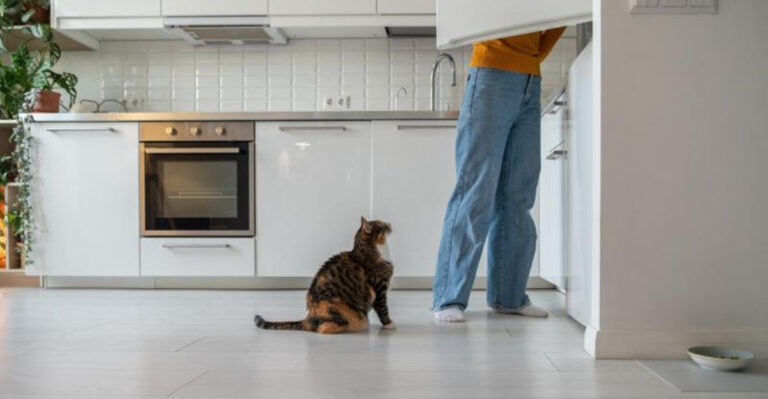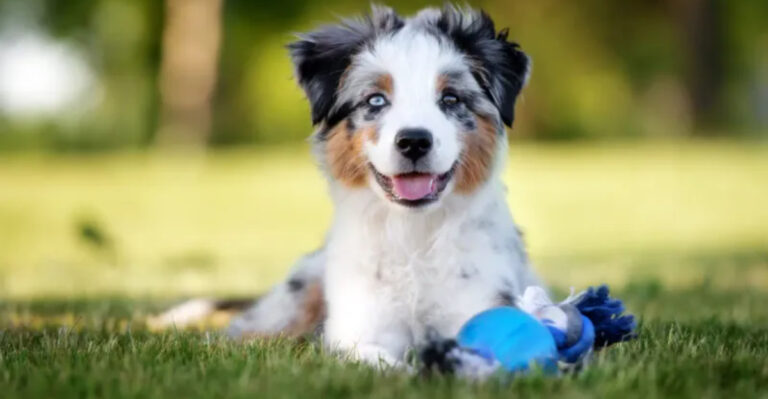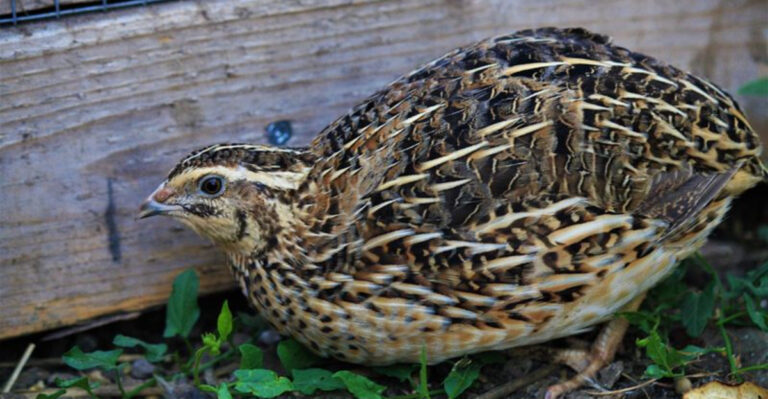15 Ways Socialization Benefits Young Puppies, Backed By Science
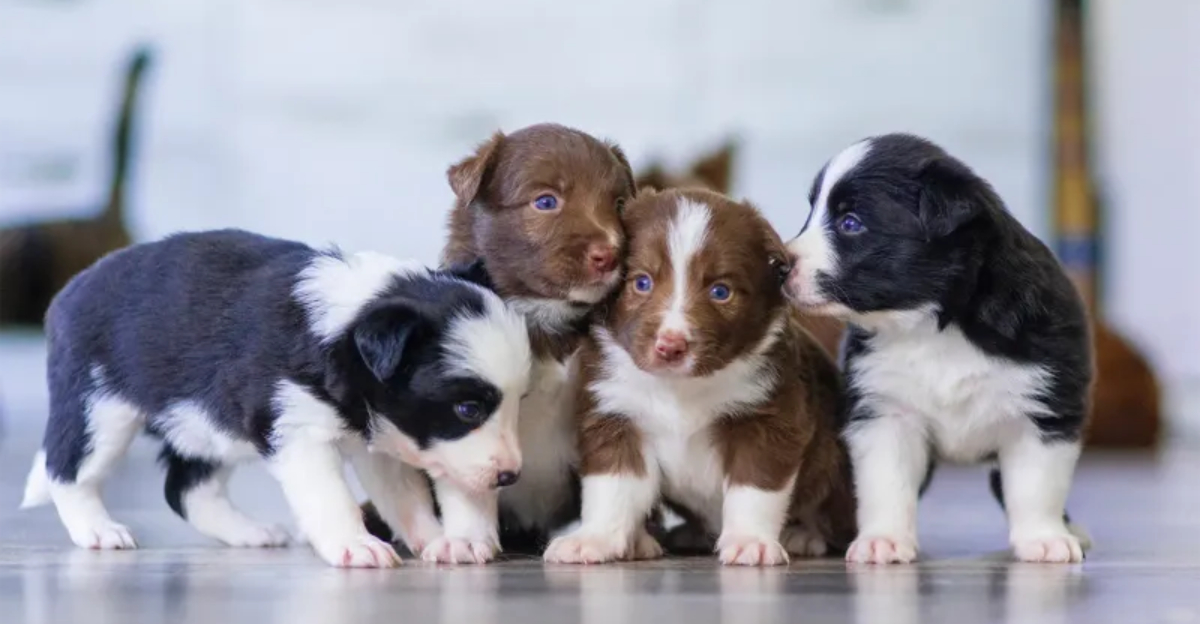
Ever wondered why puppy classes are so popular? Turns out, those adorable play sessions are more than just cute photo ops. Science shows that proper socialization during a puppy’s first few months creates the foundation for a confident, well-adjusted adult dog.
These early experiences shape how your furry friend will navigate the world for years to come.
1. Brain Development Boost
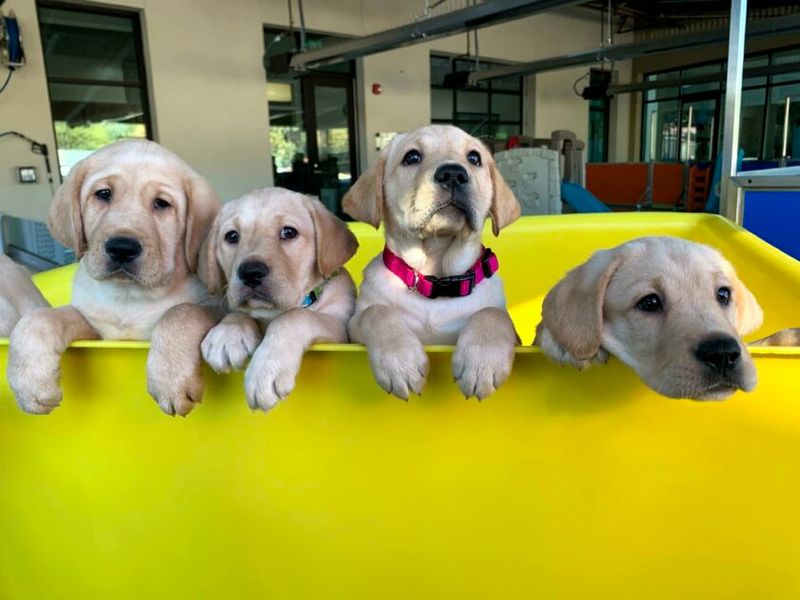
Those playful puppy interactions actually trigger important neural connections! Research shows that socialized puppies develop more complex brain structures, particularly in areas controlling fear responses and decision-making.
Think of it like exercise for your pup’s developing mind. Each new experience builds pathways that help them process the world more effectively later in life.
2. Fear Prevention Power
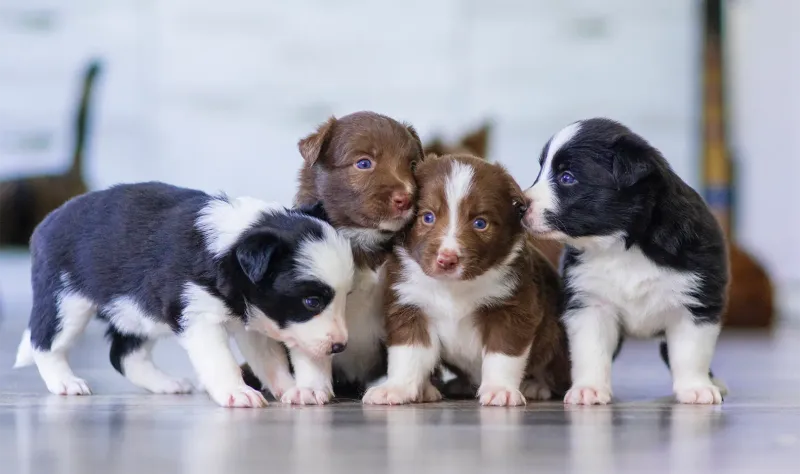
Puppies have a critical fear period between 8-12 weeks. During this window, positive exposures to new stimuli create lasting confidence.
Scientists at the University of Pennsylvania found properly socialized puppies showed 60% fewer fear behaviors as adults.
Missing this window can lead to lifelong anxiety around unfamiliar situations.
3. Communication Skills Mastery
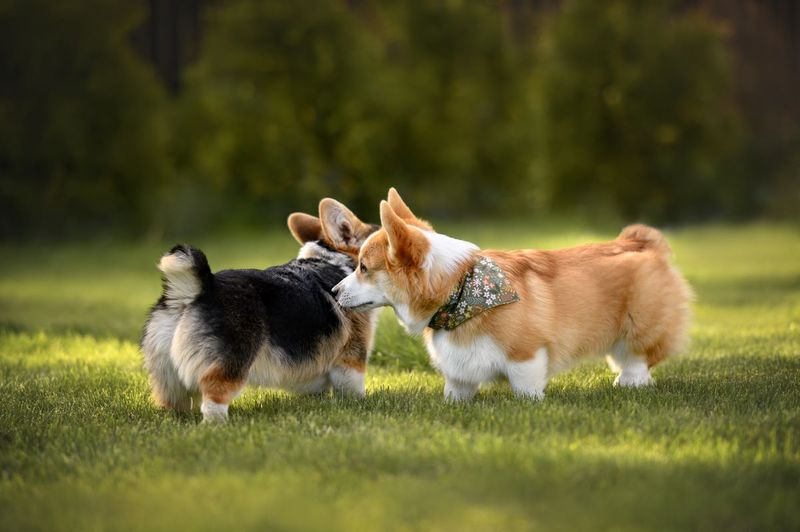
Watch puppies play and you’ll see a masterclass in dog language! They practice subtle head turns, play bows, and appropriate bite inhibition. These crucial conversations teach vital skills no human can replicate.
Research from the University of Bristol confirms these early canine interactions shape how effectively dogs communicate throughout life.
4. Stress Resilience Training
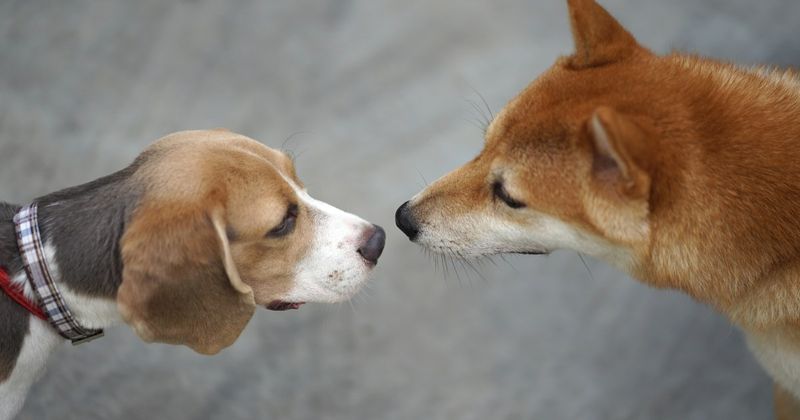
Surprise finding from veterinary research: properly socialized puppies develop better stress-coping mechanisms! Their bodies actually process cortisol (stress hormone) more efficiently when faced with challenges.
Like building immunity through exposure, gentle introductions to mild stressors help puppies develop emotional antibodies against future anxiety.
5. Bite Inhibition Learning
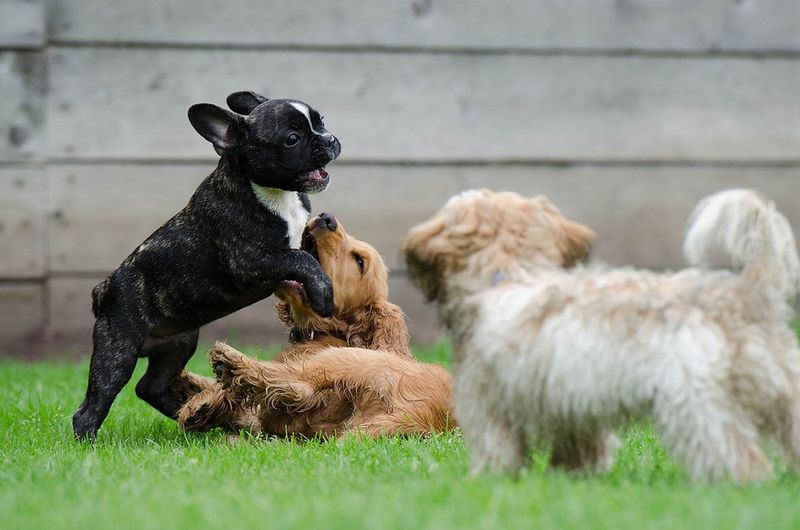
Puppies learn the gentle art of mouthing through play! When one pup bites too hard, their playmate yelps and briefly stops the fun – nature’s perfect feedback system.
Studies from the American Veterinary Society show puppies with limited dog-dog play develop poorer bite control, potentially leading to accidental injuries with humans later.
6. Behavioral Flexibility Development
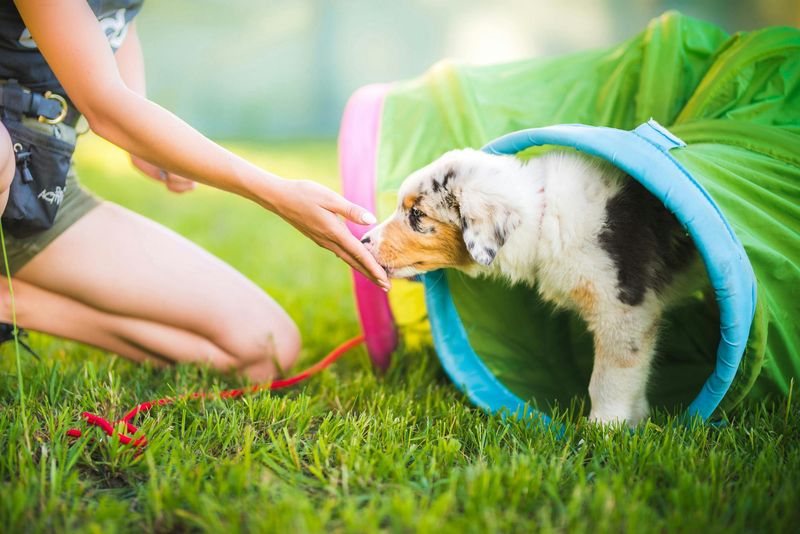
Fascinating research from Tufts University reveals socialized puppies develop greater behavioral adaptability. They approach novel situations with curiosity rather than fear.
This translates to adult dogs who can handle changes in routine, moving homes, or new family members with remarkable ease. Their early social experiences built a mental toolbox for navigating life’s surprises.
7. Human Bond Enhancement
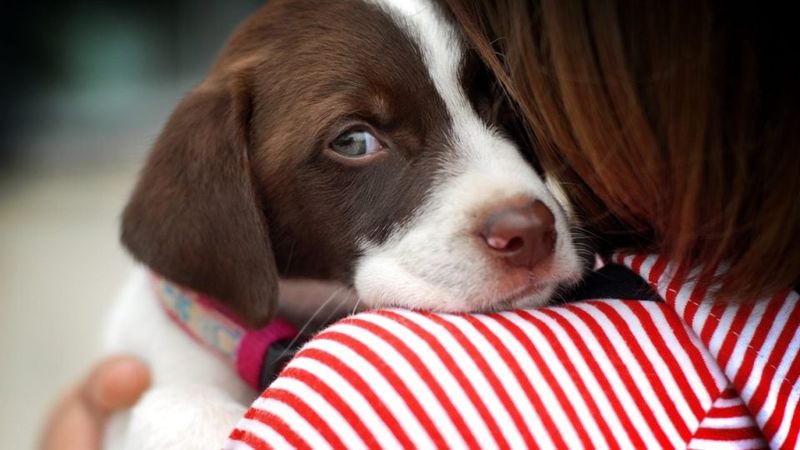
Beyond dog-dog connections, human socialization creates magical bonds! Puppies exposed to diverse people develop deeper human attachments, according to research from the University of Helsinki.
Meeting different ages, sizes, and appearances during puppyhood helps them generalize positive associations with all humans. This foundation creates those heart-melting connections we treasure.
8. Reduced Aggression Potential
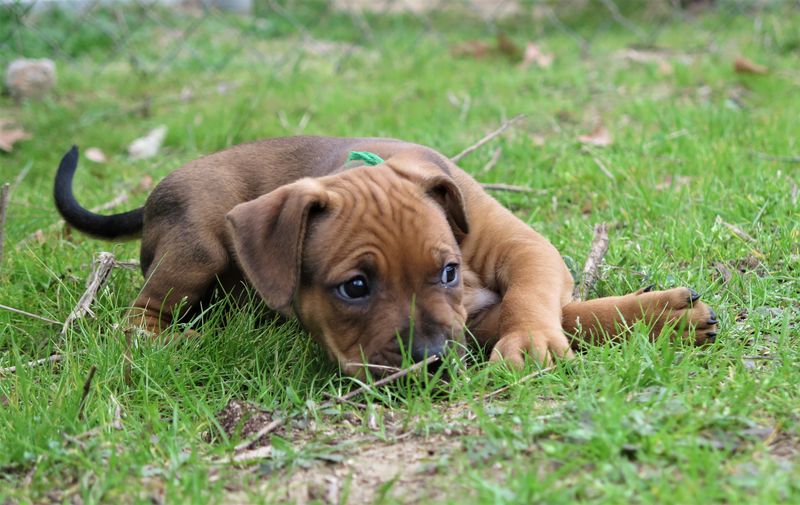
Groundbreaking 10-year study from Purdue University tracked puppies through adulthood. The findings? Well-socialized puppies showed 75% lower rates of aggression-related behavioral problems later in life.
Those early social lessons teach crucial conflict resolution skills. Puppies learn appropriate play, warning signals, and when to back off – preventing future aggressive tendencies.
9. Environmental Confidence Building
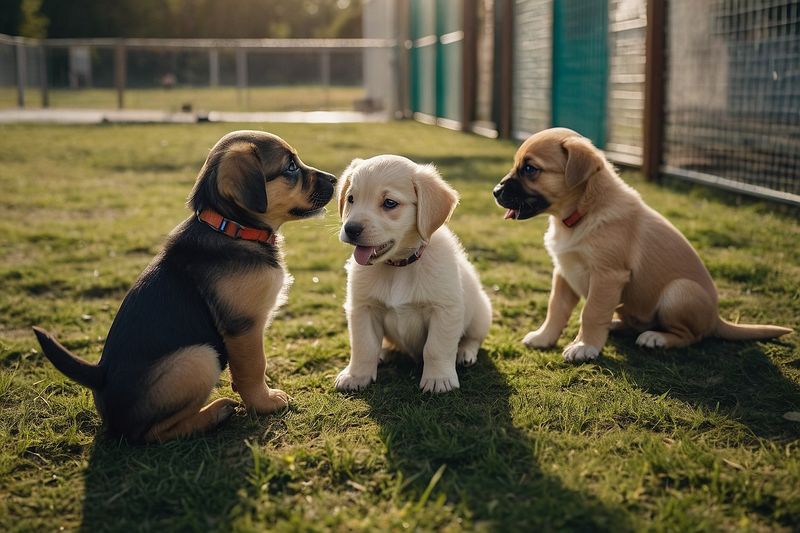
Brave little explorers need safe exposure to different textures, sounds and surfaces! Researchers at Cornell found puppies introduced to varied environments before 14 weeks developed significantly less noise sensitivity and spatial anxiety.
These early adventures help puppies categorize normal environmental variations as non-threatening, creating a foundation for lifelong environmental confidence.
10. Impulse Control Practice
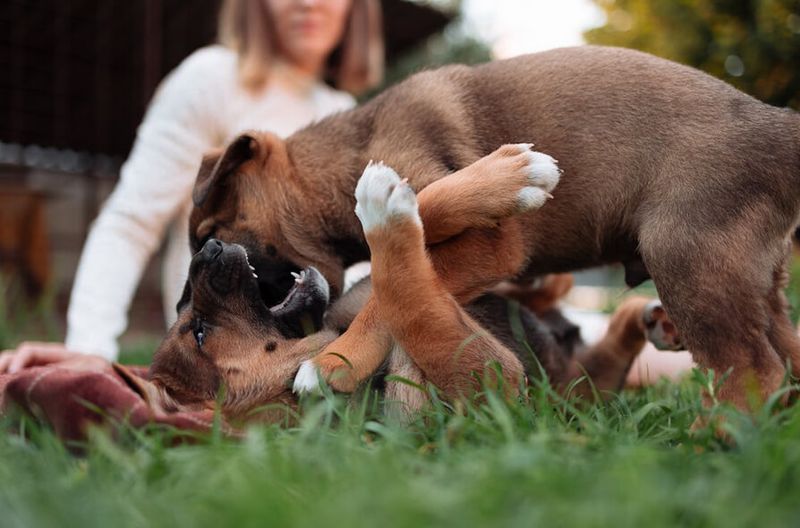
Puppy playdates are secret impulse control classrooms! Through wrestling, chasing, and toy exchanges, puppies learn to regulate their excitement and emotions.
Research published in Applied Animal Behaviour Science confirms these interactions develop the prefrontal cortex – the brain’s impulse control center. This translates to better leash manners and listening skills later on.
11. Reduced Veterinary Stress
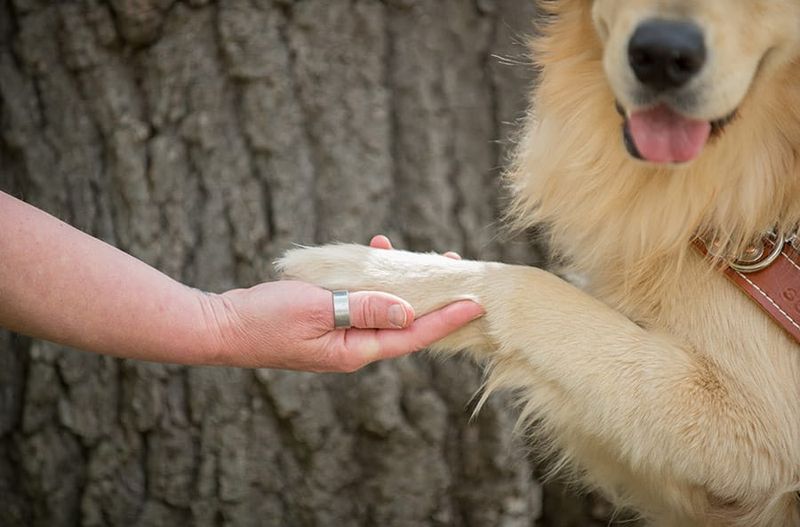
Surprise benefit! Puppies socialized to handling and different locations show dramatically reduced stress during vet visits. University of California research measured 40% lower cortisol levels in well-socialized dogs during examinations.
Early positive experiences with gentle touching of paws, ears, and mouth create lifelong acceptance of necessary handling.
12. Problem-Solving Enhancement
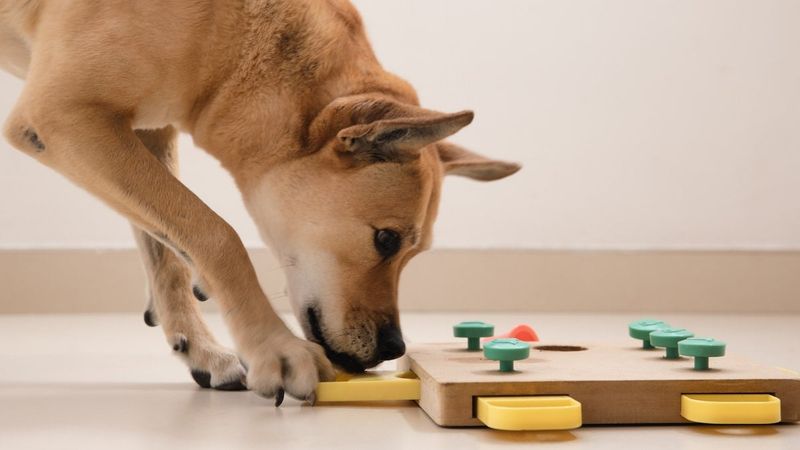
Social play supercharges canine cognition! Puppies engaged in regular play sessions develop superior problem-solving abilities compared to isolated counterparts.
Researchers at Duke University’s Canine Cognition Center found that the varied scenarios encountered during play create neural flexibility. This mental agility helps dogs navigate complex situations throughout life.
13. Genetic Potential Maximization
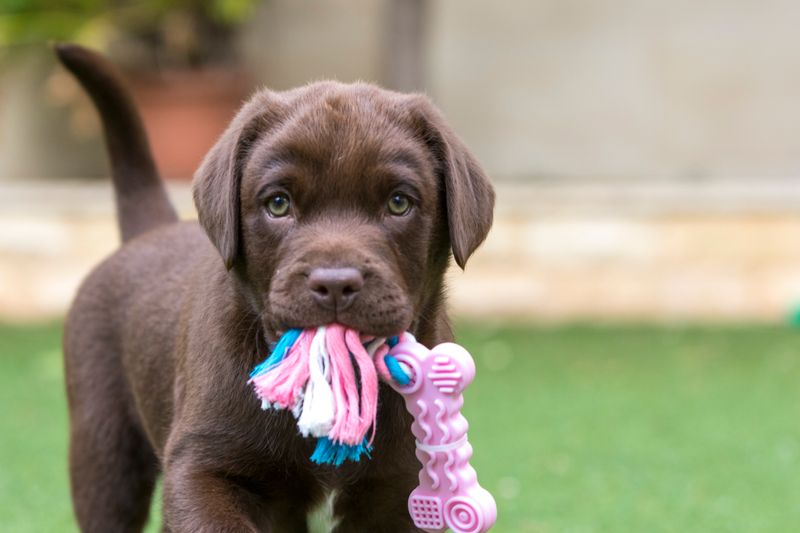
Cutting-edge epigenetic research reveals socialization actually affects gene expression! Positive early experiences activate beneficial genetic traits while potentially suppressing problematic ones.
Michigan State University scientists discovered socialized puppies showed different expression patterns in genes controlling stress responses and learning. Nature and nurture work together during this critical window.
14. Separation Anxiety Prevention
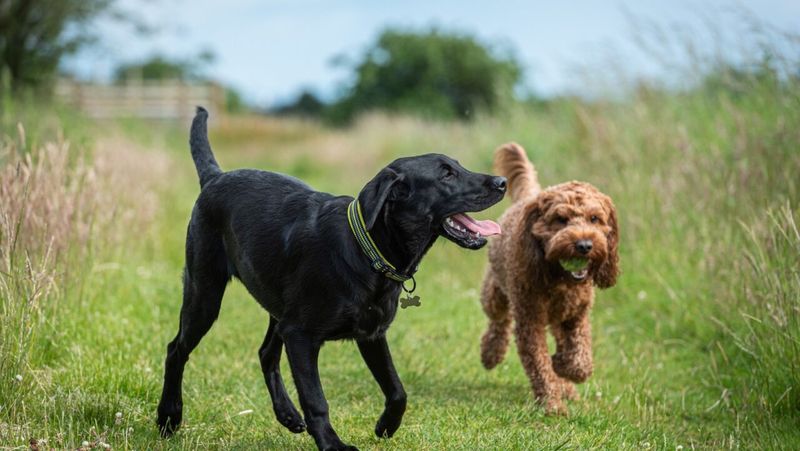
Counterintuitive finding: puppies with broader social circles actually develop stronger owner bonds with less dependency! Research from the Royal Veterinary College found well-socialized puppies developed healthier attachment styles.
They learn independence alongside connection, building confidence that their people will return. This balance prevents the development of clingy, destructive behaviors when left alone.
15. Lifelong Learning Aptitude
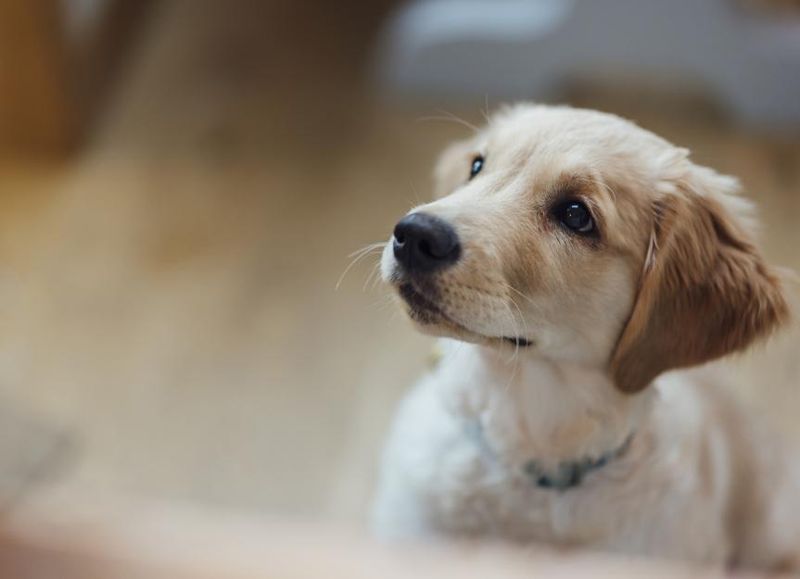
Early socialization creates canine learning enthusiasts! Studies from the Swedish University of Agricultural Sciences show properly socialized puppies maintain stronger learning motivation throughout life.
These social experiences develop curiosity and resilience when facing challenges. The result? Adult dogs who tackle new training with enthusiasm rather than frustration or fear.

